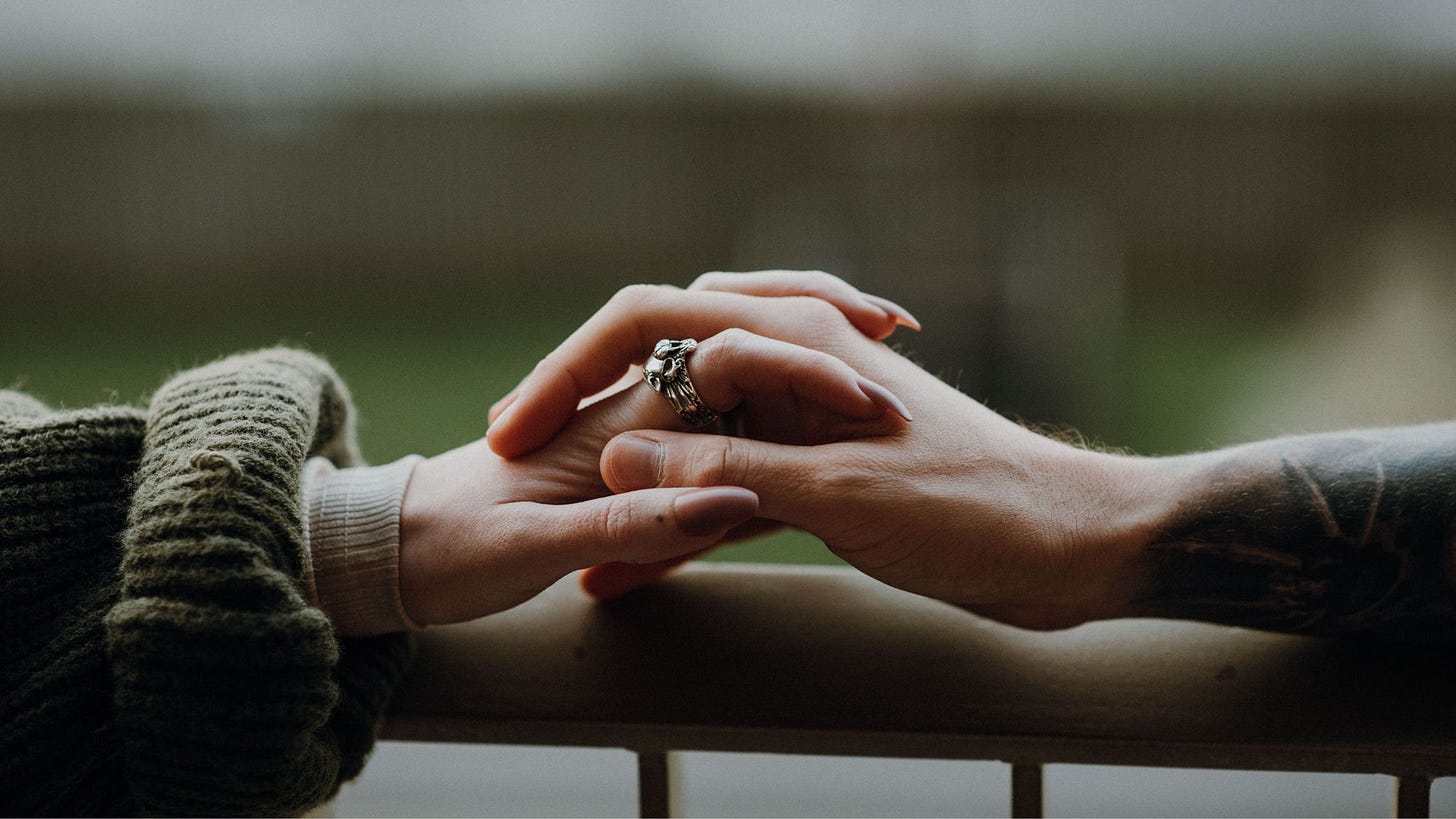Deconstructing The Pattern of Toxic Loyalty
Musings on why I hold on too long and how I've learned to let go
I've often held onto romantic, friendly, or professional relationships beyond their natural end. In relationships where I felt understood, my attachment sometimes went beyond what was healthy. I was toxically loyal.
Not all relationships end with fireworks – sometimes, it's more like a quiet fizzle-out. It turns out that not every goodbye needs a dramatic exit scene. Some relationships end because of diverging paths or evolving life goals. Embracing this old saying, 'relationships come for a reason, a season, or a lifetime,' is a source of solace when confronting endings, which have always been hard for me.
Hi, I’m Brenda, and I’m anxiously attached. Can anyone else relate? Recognizing this aspect of myself has been vital in understanding how my attachment style, influenced by complex trauma and neurodivergence, sometimes clouds my perception of relationships. I often miss the emotional and social cues signaling an end, leading to a struggle between rumination and trusting my intuition. This inner conflict of deciphering paranoia from genuine insight is a constant balancing act in my life.
These challenges were never more apparent than in my relationship with an ex-boyfriend, a struggling addict, where my toxic loyalty was on autopilot. I deeply empathized with his need to escape pain, a sentiment that mirrored my own tumultuous past as a traumatized adolescent. Knowing the sting of abandonment, I developed a 'we don’t shoot our wounded' mentality, which, though well-intentioned, led me into troubled waters. Leaving him at his lowest felt impossible; it seemed he had no one else.
I remember one evening, sitting alone after a particularly painful argument. It dawned on me that the relationship was a mirror, reflecting my deepest insecurities. At that moment, I also understood there was a payoff for staying. Dating him was like riding a dopamine rollercoaster, going up and down between excitement, disappointment, hope, and despair. It still took him almost dying and going to prison for me to listen to that voice, stop trying to fix him and let go.
Though that situation was heartbreaking, I believe it happened for a reason. I've learned to avoid dating substance abusers. And the lessons I learned healing from that breakdown have become a medicine I can offer others in similar situations.
Something fundamentally shifted in me over the past several years. I’m calling it my season of deconstruction. Recognizing the patterns of centering my life around a partner, an organization, or a job and gripping, afraid to let go because I might lose something I perceived to have or not get something I want is crucial to my healing.
Post-breakup, I took a 'men detox,' which turned out to be a journey of self-discovery, filled with more 'aha' moments than an Oprah special. Staying single and engaging in therapy helped me uncover deeper issues, revealing a pattern of limerence, a toxic emotional attachment rooted in my past as a lost girl trying to construct a life, a family, and safety. I naively believed that if I made ‘his’ life easier, he’d value me; if I acted just right, men would like me, promote me, or support me. It was a rude awakening, as was the realization that internalized misogyny made the condition worse.
Reflecting on my 23-year career in the male-dominated tech industry, I recognize parallels with my romantic life. My dedication often meant sacrificing my own needs. Once, in a snowstorm, I risked my safety for a wifi signal. I didn’t win Employee of the Year, but it showed me how skewed my priorities were. Just like it was with my lovers.
As my self-awareness grew, so did my cognitive dissonance. A veil lifted, revealing systemic, unconscious biases – the industry’s and mine. I was deep in the belly of the beast, unknowingly contributing to the very issues I struggled against.
This awakening made working in that environment impossible. I can’t fix the patriarchy or a giant corporation. But old habits die hard, and just like with the ex, I didn’t leave immediately. I had bills to pay. This time, I made it my mission to center myself, create better boundaries, and change how I showed up. Things got better, but there I was, ruminating again, questioning how to leave, fearing financial ruin. Thankfully, I got lucky; they decided for me - a layoff and a decent severance that afforded me time to recover from burnout.
Looking back, I see a pattern of decisions driven by fear, autopilot, and dopamine in all areas of my life. This realization sparked a broader deconstruction process, prompting me to reassess all my relationships and their alignment with the current me. Some relationships have shifted, some have ended, others have deepened, and new connections have emerged.
The saying, 'wear the world like a loose garment,' attributed to St. Francis of Assisi, resonates with me. Although I'm not religious, the message of embracing change rather than resisting it speaks to my current mindset. In 2024, I'm adopting this ethos, hoping it will guide me toward a community of like-minded friends and colleagues.
I'm curious about your experiences. Have you ever lingered in situations longer than necessary? Are you embracing new beginnings? I’d love to hear your insights.
Support independent writing and journalism. Paid subscribers like you make my work possible and support this wonderful community of readers.






I can relate to this, so much.
Thank you! And I appreciate you becoming a paid subscriber ❤️